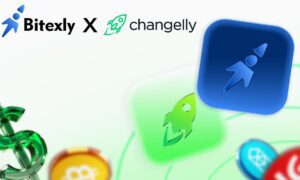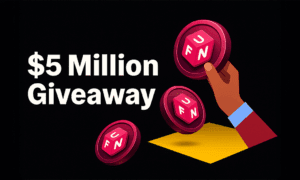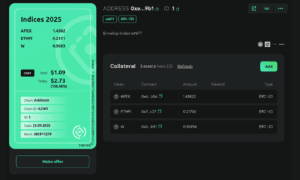Introduction
In the world of digital assets and cryptocurrencies, NFTs (non-fungible tokens) have taken the spotlight, and OpenSea has emerged as a leading marketplace for trading and exploring these unique tokens. This SEO-optimized blog article will provide a deep dive into how the OpenSea marketplace works, breaking down its features, processes, and benefits in more than 1200 words.
What is OpenSea?
OpenSea is an online platform that serves as a decentralized marketplace for buying, selling, and trading NFTs. NFTs are digital assets that represent ownership or proof of authenticity of a unique item, whether it’s digital art, virtual real estate, collectibles, or any other digital object. OpenSea has gained widespread popularity as a hub for NFT enthusiasts, artists, collectors, and investors.
How to Get Started on OpenSea
Before you can explore how OpenSea works, you need to get started by setting up an account. Here’s a step-by-step guide:
a. Visit OpenSea: Go to the OpenSea website (https://opensea.io/).
b. Sign Up or Connect Wallet: You can create an account or connect your existing cryptocurrency wallet, such as MetaMask.
c. Explore the Marketplace: Once you’re in, you can start exploring the vast collection of NFTs available for sale, trade, or auction.
Discovering NFTs on OpenSea
OpenSea offers a user-friendly interface that makes it easy to discover and explore NFTs. Users can search for NFTs based on various criteria:
a. Categories: NFTs are categorized by type, including art, music, virtual worlds, domain names, and more.
b. Filters: You can apply filters to narrow down your search based on attributes like price, rarity, and ownership.
c. Featured Collections: OpenSea often features curated collections, highlighting notable NFTs and artists.
d. Trending NFTs: Discover what’s currently trending and popular on the platform.
Buying NFTs on OpenSea
When you find an NFT you want to purchase, the process is relatively straightforward:
a. Select the NFT: Click on the NFT to view its details, including its owner, price, and attributes.
b. Place a Bid or Buy Now: Depending on the seller’s preferences, you can either place a bid or purchase the NFT instantly at the listed price.
c. Confirm the Transaction: If you’re successful, confirm the transaction, and the NFT will be added to your collection.
Selling NFTs on OpenSea
If you’re an artist or collector looking to sell your NFTs, OpenSea provides a simple method:
a. Create a Collection: Organize your NFTs into collections to make them more appealing to potential buyers.
b. List NFTs for Sale: You can set the price, choose between fixed-price listings or auctions, and set any royalty fees for future resales.
c. Confirm the Listing: Once you’ve created a listing, confirm the transaction, and your NFT will be available for sale on the marketplace.
Auctions on OpenSea
Auctions are a popular feature on OpenSea, allowing buyers and sellers to engage in competitive bidding for NFTs. Here’s how it works:
a. Set the Auction Parameters: Sellers specify the starting bid, reserve price, duration, and other details.
b. Bidding: Interested buyers can place bids on the NFT during the auction period.
c. Winning Bid: When the auction ends, the highest bidder wins the NFT, and the transaction is completed.
Benefits of OpenSea
a. Ownership and Provenance
One of the key benefits of OpenSea is its transparency and security. Each NFT on the platform is recorded on the Ethereum blockchain, providing a clear ownership history. This blockchain technology ensures the authenticity and provenance of each NFT, making it nearly impossible to counterfeit or tamper with ownership records.
b. Gas Fees and Transaction Costs
It’s essential to be aware of gas fees when using OpenSea, as it operates on the Ethereum blockchain. Gas fees are transaction costs paid to Ethereum miners. The cost of buying, selling, or trading NFTs can vary based on network congestion, but it’s crucial to consider these fees in your transactions.
c. Royalties for artists
OpenSea allows artists to set royalties on their NFTs, which means they can earn a percentage of the resale price each time the NFT changes hands. This provides ongoing support for artists and creators, even after the initial sale.
d. OpenSea’s Community and Social Features
OpenSea isn’t just a marketplace; it’s also a community. Users can interact with each other through comments, likes, and follows. Artists can engage with their fans, and collectors can discuss their interests and discoveries. These social features add a layer of community and connection to the platform.
e. Metaverse Integration
OpenSea is also expanding into the metaverse, integrating with virtual worlds and platforms like Decentraland, CryptoVoxels, and Somnium Space. NFTs purchased on OpenSea can often be used within these virtual environments, adding a new dimension to the concept of digital ownership.
f. The OpenSea Wallet
The OpenSea Wallet is a convenient feature that allows users to manage their NFT collections and perform transactions directly through the OpenSea platform. This eliminates the need for third-party cryptocurrency wallets and simplifies the user experience.
8. OpenSea and Gaming
NFTs have found significant applications in the gaming industry, and OpenSea plays a pivotal role in this sector. Gamers can buy, sell, and trade in-game assets and skins as NFTs on the platform. This adds a new layer of value to digital gaming assets.
Challenges and Considerations
While OpenSea offers a wealth of opportunities, it’s not without its challenges and considerations.
a. Scalability: The Ethereum blockchain’s scalability issues can lead to slow transactions and high gas fees during periods of high demand.
b. Security: As with any online marketplace, there’s always a risk of scams, fraud, and phishing attacks.
c. Environmental Concerns: The environmental impact of blockchain technology, especially the energy consumption of Ethereum, is a growing concern in the NFT space.
d. Regulatory Landscape: NFTs are a relatively new and evolving market, and the regulatory environment is still taking shape.
OpenSea’s Future and Potential
OpenSea continues to innovate and expand its offerings. It has attracted significant investment and partnerships, indicating its potential for growth. The platform is likely to evolve to address scalability and environmental concerns while embracing new blockchain technologies.
Conclusion
OpenSea is a prominent player in the NFT ecosystem, offering a versatile and user-friendly marketplace for buying, selling, and trading digital assets. Understanding how OpenSea works can open up exciting opportunities for artists, collectors, investors, and enthusiasts in the ever-evolving world of NFTs. As the NFT market continues to evolve, OpenSea remains at the forefront, providing a secure and transparent platform for all participants in the digital ownership revolution.



































